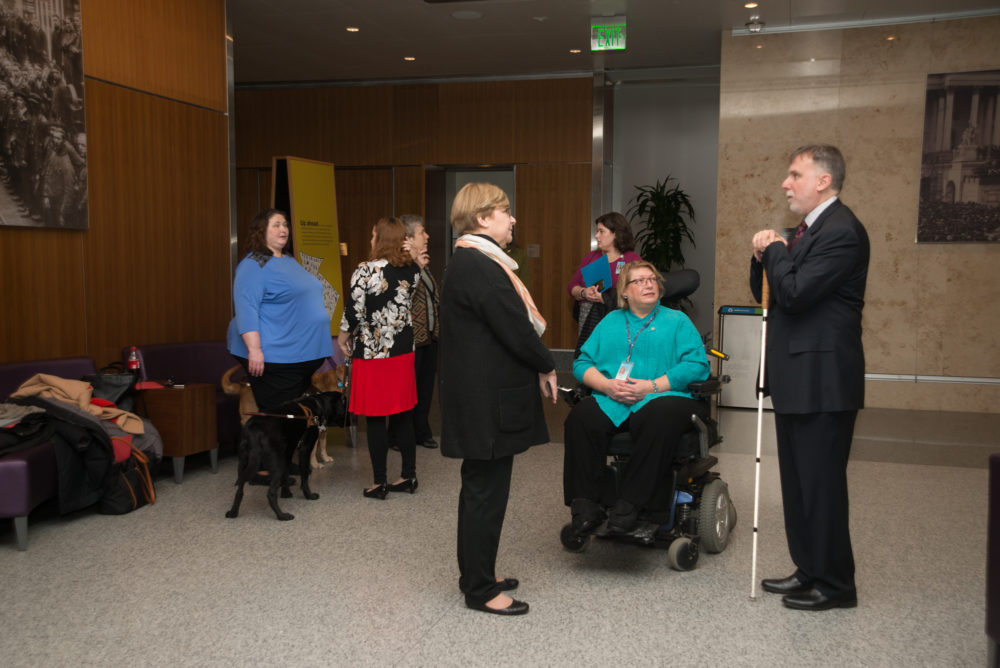For many small businesses, the COVID-19 crisis brought struggles to survive, and pivots to keep going. Policymakers stepped in to provide relief and unique solutions to operate amid restrictions.
Yet the history of economic downturns tells us that there will be a long period of recovery, and it could also be a time when new approaches are formed. So it’s helpful to think about what might help to push folks forward, and how those ideas could be implemented.
That’s the aim of the Maryland Small Business Policy Hack-A-Thon. Over the last month, State Sen. Katie Fry Hester (D-Howard) and leaders at the University of Maryland brought together stakeholders from around the state to put together new initiatives for small businesses.
With the legislature seeking long-term initiatives that could help small businesses that are getting hit hard by the crisis, Hester is chair of the small business working group, which typically meets around this time to start working on issues ahead of next year’s legislative session. The senator saw the need for a way to engage the public in coming up with solutions, and wanted to tap into the brain power at the state’s educational institutions. And a hackathon is just the kind of event that brings folks together to come up with new solutions.
“It makes sense to involve Marylanders in the process of creating solutions for Marylanders,” said Nithin Venkatraman, Hester’s chief of staff.
The University of Maryland got involved early, as Chief Innovation Officer Julie Lenzer had experience with a similar program at SXSW several years ago. The Maryland Small Business Development Center, which is a UMD program, has been on the frontlines of the pandemic assisting small businesses and joined on as an organizer, as well. The College Park team members soon provided data, recommended policy ideas, connected with advisers and did the behind-the-scenes work like running the virtual event’s technology and marketing.
It resulted in a public call for participants that gathered more than 50 members of the public, students and faculty. Teams were formed Sept. 17, and they spent several weeks researching ideas, meeting with advisers and putting together proposals in five key topic areas from childcare to workforce development. The teams will present to a bipartisan group of legislators at a virtual event on Oct. 21.
Register“The benefit of this model is in bringing diverse voices to the table to innovate around policy ideas, including startups and students,” Lenzer said. “We’ll be hearing ideas from teams that include the folks most impacted, and our economic recovery depends largely on our small businesses, as they tend to create net new jobs at the highest rate.”
Along with creating ideas, there’s intention that these ideas could be put on a path to being incorporated into policy. At the event, each team is presenting both a “moonshot” idea, but also a version that could work in the state budget. The demo event won’t include prizes. But going forward, legislators who hear the proposals will have a chance to follow up with the teams. Like software, new laws are the result of an iterative approach.
“This is part of an ongoing process but with this groundwork laid I’m hoping we set up some conceptual frameworks to bring this to reality. I’m hoping this can become a model for creative problem solving in the state,” said Venkatraman.
Before you go...
Please consider supporting Technical.ly to keep our independent journalism strong. Unlike most business-focused media outlets, we don’t have a paywall. Instead, we count on your personal and organizational support.
3 ways to support our work:- Contribute to the Journalism Fund. Charitable giving ensures our information remains free and accessible for residents to discover workforce programs and entrepreneurship pathways. This includes philanthropic grants and individual tax-deductible donations from readers like you.
- Use our Preferred Partners. Our directory of vetted providers offers high-quality recommendations for services our readers need, and each referral supports our journalism.
- Use our services. If you need entrepreneurs and tech leaders to buy your services, are seeking technologists to hire or want more professionals to know about your ecosystem, Technical.ly has the biggest and most engaged audience in the mid-Atlantic. We help companies tell their stories and answer big questions to meet and serve our community.
Join our growing Slack community
Join 5,000 tech professionals and entrepreneurs in our community Slack today!

The person charged in the UnitedHealthcare CEO shooting had a ton of tech connections

From rejection to innovation: How I built a tool to beat AI hiring algorithms at their own game

Where are the country’s most vibrant tech and startup communities?



